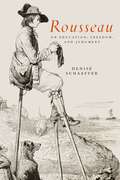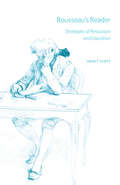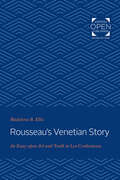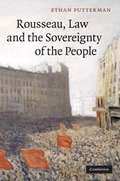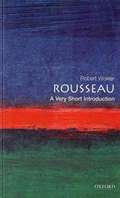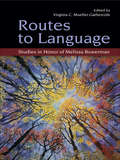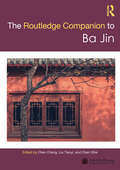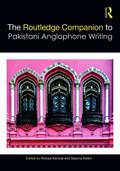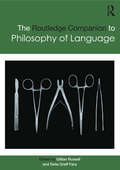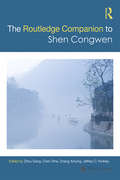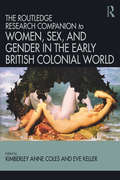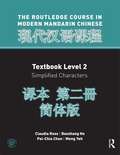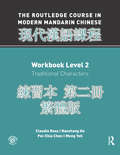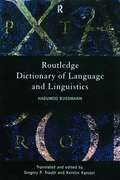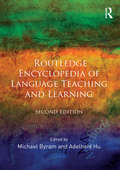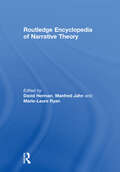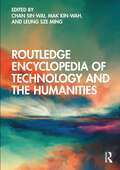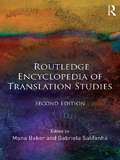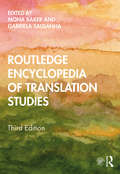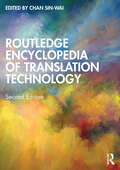- Table View
- List View
Rousseau on Education, Freedom, and Judgment
by Denise SchaefferIn Rousseau on Education, Freedom, and Judgment, Denise Schaeffer challenges the common view of Rousseau as primarily concerned with conditioning citizens’ passions in order to promote republican virtue and unreflective patriotism. Schaeffer argues that, to the contrary, Rousseau’s central concern is the problem of judgment and how to foster it on both the individual and political level in order to create the conditions for genuine self-rule. Offering a detailed commentary on Rousseau’s major work on education, Emile, and a wide-ranging analysis of the relationship between Emile and several of Rousseau’s other works, Schaeffer explores Rousseau’s understanding of what good judgment is, how it is learned, and why it is central to the achievement and preservation of human freedom. The model of Rousseauian citizenship that emerges from Schaeffer’s analysis is more dynamic and self-critical than is often recognized. This book demonstrates the importance of Rousseau’s contribution to our understanding of the faculty of judgment, and, more broadly, invites a critical reevaluation of Rousseau’s understanding of education, citizenship, and both individual and collective freedom.
Rousseau on Education, Freedom, and Judgment
by Denise SchaefferIn Rousseau on Education, Freedom, and Judgment, Denise Schaeffer challenges the common view of Rousseau as primarily concerned with conditioning citizens’ passions in order to promote republican virtue and unreflective patriotism. Schaeffer argues that, to the contrary, Rousseau’s central concern is the problem of judgment and how to foster it on both the individual and political level in order to create the conditions for genuine self-rule. Offering a detailed commentary on Rousseau’s major work on education, Emile, and a wide-ranging analysis of the relationship between Emile and several of Rousseau’s other works, Schaeffer explores Rousseau’s understanding of what good judgment is, how it is learned, and why it is central to the achievement and preservation of human freedom. The model of Rousseauian citizenship that emerges from Schaeffer’s analysis is more dynamic and self-critical than is often recognized. This book demonstrates the importance of Rousseau’s contribution to our understanding of the faculty of judgment, and, more broadly, invites a critical reevaluation of Rousseau’s understanding of education, citizenship, and both individual and collective freedom.
Rousseau's Critique of Inequality
by Frederick NeuhouserRousseau's Discourse on the Origin of Inequality among Mankind, published in 1755, is a vastly influential study of the foundations of human society, including the economic inequalities it tends to create. To date, however, there has been little philosophical analysis of the Discourse in the literature. In this book, Frederick Neuhouser offers a rich and incisive philosophical examination of the work. He clarifies Rousseau's arguments as to why social inequalities are so prevalent in human society and why they pose fundamental dangers to human well-being, including unhappiness, loss of freedom, immorality, conflict, and alienation. He also reconstructs Rousseau's four criteria for assessing when inequalities are or are not legitimate, and why. His reconstruction and evaluation of Rousseau's arguments are accessible to both scholars and students, and will be of interest to a broad range of readers including philosophers, political theorists, cultural historians, sociologists, and economists.
Rousseau's Reader: Strategies of Persuasion and Education
by John T. ScottOn his famous walk to Vincennes to visit the imprisoned Diderot, Rousseau had what he called an “illumination”—the realization that man was naturally good but becomes corrupted by the influence of society—a fundamental change in Rousseau’s perspective that would animate all of his subsequent works. At that moment, Rousseau “saw” something he had hitherto not seen, and he made it his mission to help his readers share that vision through an array of rhetorical and literary techniques. In Rousseau’s Reader, John T. Scott looks at the different strategies Rousseau used to engage and persuade the readers of his major philosophical works, including the Social Contract, Discourse on Inequality, and Emile. Considering choice of genre; textual structure; frontispieces and illustrations; shifting authorial and narrative voice; addresses to readers that alternately invite and challenge; apostrophe, metaphor, and other literary devices; and, of course, paradox, Scott explores how the form of Rousseau’s writing relates to the content of his thought and vice versa. Through this skillful interplay of form and content, Rousseau engages in a profoundly transformative dialogue with his readers. While most political philosophers have focused, understandably, on Rousseau’s ideas, Scott shows convincingly that the way he conveyed them is also of vital importance, especially given Rousseau’s enduring interest in education. Giving readers the key to Rousseau’s style, Scott offers fresh and original insights into the relationship between the substance of his thought and his literary and rhetorical techniques, which enhance our understanding of Rousseau’s project and the audiences he intended to reach.
Rousseau's Reader: Strategies of Persuasion and Education
by John T. ScottOn his famous walk to Vincennes to visit the imprisoned Diderot, Rousseau had what he called an “illumination”—the realization that man was naturally good but becomes corrupted by the influence of society—a fundamental change in Rousseau’s perspective that would animate all of his subsequent works. At that moment, Rousseau “saw” something he had hitherto not seen, and he made it his mission to help his readers share that vision through an array of rhetorical and literary techniques. In Rousseau’s Reader, John T. Scott looks at the different strategies Rousseau used to engage and persuade the readers of his major philosophical works, including the Social Contract, Discourse on Inequality, and Emile. Considering choice of genre; textual structure; frontispieces and illustrations; shifting authorial and narrative voice; addresses to readers that alternately invite and challenge; apostrophe, metaphor, and other literary devices; and, of course, paradox, Scott explores how the form of Rousseau’s writing relates to the content of his thought and vice versa. Through this skillful interplay of form and content, Rousseau engages in a profoundly transformative dialogue with his readers. While most political philosophers have focused, understandably, on Rousseau’s ideas, Scott shows convincingly that the way he conveyed them is also of vital importance, especially given Rousseau’s enduring interest in education. Giving readers the key to Rousseau’s style, Scott offers fresh and original insights into the relationship between the substance of his thought and his literary and rhetorical techniques, which enhance our understanding of Rousseau’s project and the audiences he intended to reach.
Rousseau's Social Contract
by David Lay WilliamsIf the greatness of a philosophical work can be measured by the volume and vehemence of the public response, there is little question that Rousseau's Social Contract stands out as a masterpiece. Within a week of its publication in 1762 it was banished from France. Soon thereafter, Rousseau fled to Geneva, where he saw the book burned in public. At the same time, many of his contemporaries, such as Kant, considered Rousseau to be 'the Newton of the moral world', as he was the first philosopher to draw attention to the basic dignity of human nature. The Social Contract has never ceased to be read and debated in the 250 years since its publication. Rousseau's Social Contract: An Introduction offers a thorough and systematic tour of this notoriously paradoxical and challenging text. David Lay Williams offers readers a chapter-by-chapter reading of the Social Contract, squarely confronting these interpretive obstacles. The book also features a special extended appendix dedicated to outlining Rousseau's famous conception of the general will, which has been the object of controversy since the Social Contract's publication in 1762.
Rousseau's Venetian Story: An Essay upon Art and Truth in Les Confessions
by Madeleine B. EllisOriginally published in 1966. This book is primarily a literary study of Rousseau's account of his diplomatic experiences in Venice, contained in book 7 of the Confessions and written in 1769. The author analyzes Rousseau's methods of achieving an artistic rendering of psychological truth in autobiography, as exemplified in his treatment of the events of 1742–1749. Professor Madeleine Ellis contributes to an understanding of Rousseau as a creative artist and positions him vis-à-vis the classical and romantic movements. Ellis collates the text of the Confessions with contemporary correspondence and other documents to show how discrepancies between the two have artistic implications. These implications lead her to define Rousseau's principles and methods as a man of letters and the interrelations of art and truth in his memoirs. In revealing that Rousseau, the memorialist, gives an artistic rendering of psychological truth, Ellis shows Rousseau's attitude toward truth. She does this by following a path of analysis unexplored by previous critics but indicated by Rousseau himself when he says, "It is the story of my soul that I have promised... I record not so much the events of my life as the state of my soul as they happened." Ultimately, the objective of this study is to illustrate the artistic means—literary and rhetorical—employed by Rousseau and their implications for the truth he proposed.
Rousseau, Law and the Sovereignty of the People
by Ethan PuttermanTogether with Plato's Republic, Jean-Jacques Rousseau's Social Contract is regarded as one of the most original examples of utopian political engineering in the history of ideas. Similar to the Republic, Rousseau's masterwork is better known today for its author's idiosyncratic view of political justice than its lessons on lawmaking or governance in any concrete sense. Challenging this common view, Rousseau, Law and the Sovereignty of the People examines the Genevan's contributions as a legislator and builder of institutions, relating his major ideas to issues and debates in twenty-first century political science. Ethan Putterman explores how Rousseau's just state would actually operate, investigating how laws would be drafted, ratified and executed, arguing that the theory of the Social Contract is more pragmatic and populist than many scholars assume today.
Rousseau: A Very Short Introduction
by Robert WoklerOne of the most profound thinkers of modern history, Jean-Jacques Rousseau (1712-78) was a central figure of the European Enlightenment. He was also its most formidable critic, condemning the political, economic, theological, and sexual trappings of civilization along lines that would excite the enthusiasm of romantic individualists and radical revolutionaries alike. In this study of Rousseau's life and works Robert Wokler shows how his philosophy of history, his theories of music and politics, his fiction, educational and religious writings, and even his botany, were all inspired by visionary ideals of mankind's self-realization in a condition of unfettered freedom. He explains how, in regressing to classical republicanism, ancient mythology, direct communion with God, and solitude, Rousseau anticipated some post-modernist rejections of the Enlightenment as well.
Routes to Language: Studies in Honor of Melissa Bowerman
by Virginia C. Mueller GathercoleThis volume contains contributions from leaders in the field of child language in honor of one of the preeminent scholars in the field of child language acquisition, Melissa Bowerman. Melissa Bowerman has had a profound, widespread, and enduring influence on research conducted in the field for nearly 40 years. In addition to being a tribute to Professor Bowerman and her work, the chapters provide the most up-to-date statement of key positions by several leaders in the field of child language development. Fundamental questions in the field are explored in depth, and there are rich analyses of progress in the field in a number of areas, including learning words; crosslinguistic patterning and acquisition of lexical semantics; crosslinguistic patterning and events, paths, and causes; and influences on development. The volume is essential reading for researchers in child language and development, linguistics, psychology, education, and speech pathology, as well as researchers and practitioners specializing in the many specific languages discussed in the book.
Routledge Companion to Ba Jin (Chinese Literature Series from a Global Perspective)
by Chen Chang, Liu Tianyi, and Chen SiheExploring the creations of Ba Jin (1904–2005), one of the most significant writers in modern China, this edited volume offers in-depth discussions of the writer and his works from a global perspective to initiate and advance dialogues between the Chinese- and English- speaking scholarly communities. The four sections of the book provide readers with a detailed biography and an overview of research on Ba Jin since the 1980s to reflect on the academic achievements of several generations in China. In addition, it includes a selected collection of articles from Korean, German, and French scholars. These articles cover Ba Jin’s life thoughts, personality, literary creation, editing, publishing, and other aspects of the research. This companion aims to provide an alternative lens for Chinese literature studies in a global context. It will be an essential read to students and scholars of East Asian studies, Chinese studies, and those interested in modern Chinese literature.
Routledge Companion to Pakistani Anglophone Writing (Routledge Literature Companions)
by Aroosa Kanwal Saiyma AslamThe Routledge Companion to Pakistani Anglophone Writing forms a theoretical, comprehensive, and critically astute overview of the history and future of Pakistani literature in English. Dealing with key issues for global society today, from terrorism, religious extremism, fundamentalism, corruption, and intolerance, to matters of love, hate, loss, belongingness, and identity conflicts, this Companion brings together over thirty essays by leading and emerging scholars, and presents: the transformations and continuities in Pakistani anglophone writing since its inauguration in 1947 to today; contestations and controversies that have not only informed creative writing but also subverted certain stereotypes in favour of a dynamic representation of Pakistani Muslim experiences; a case for a Pakistani canon through a critical perspective on how different writers and their works have, at different times, both consciously and unconsciously, helped to realise and extend a uniquely Pakistani idiom. Providing a comprehensive yet manageable introduction to cross-cultural relations and to historical, regional, local, and global contexts that are essential to reading Pakistani anglophone literature, The Routledge Companion to Pakistani Anglophone Writing is key reading for researchers and academics in Pakistani anglophone literature, history, and culture. It is also relevant to other disciplines such as terror studies, post-9/11 literature, gender studies, postcolonial studies, feminist studies, human rights, diaspora studies, space and mobility studies, religion, and contemporary South Asian literatures and cultures.
Routledge Companion to Philosophy of Language (Routledge Philosophy Companions)
by Gillian Russell Delia Graff FaraPhilosophy of language is the branch of philosophy that examines the nature of meaning, the relationship of language to reality, and the ways in which we use, learn, and understand language. The Routledge Companion to Philosophy of Language provides a comprehensive and up-to-date survey of the field, charting its key ideas and movements, and addressing contemporary research and enduring questions in the philosophy of language. Unique to this Companion is clear coverage of research from the related disciplines of formal logic and linguistics, and discussion of the applications in metaphysics, epistemology, ethics and philosophy of mind. Organized thematically, the Companion is divided into seven sections: Core Topics; Foundations of Semantics; Parts of Speech; Methodology; Logic for Philosophers of Language; Philosophy of Language for the Rest of Philosophy; and Historical Perspectives. Comprised of 70 never-before-published essays from leading scholars--including Sally Haslanger, Jeffrey King, Sally McConnell-Ginet, Rae Langton, Kit Fine, John MacFarlane, Jeff Pelletier, Scott Soames, Jason Stanley, Stephen Stich and Zoltan Gendler Szabo--the Routledge Companion to Philosophy of Language promises to be the most comprehensive and authoritative resource for students and scholars alike.
Routledge Companion to Shen Congwen (Chinese Literature Series from a Global Perspective)
by Gang Zhou Sihe Chen Zhang Xinying Jeffrey C KinkleyThis volume is about studies of Shen Congwen (1902–1988), one of the most important writers in modern China, but more importantly, it is about how Shen Congwen has been received in and beyond Mainland China. By presenting the best literary criticism on Shen Congwen in Mainland China over the past 80 years, and views of how Shen Congwen has been understood, interpreted, and appreciated in Japan, the US, and Europe, the editors propose a new way to approach the topics of canonic writers, modern Chinese literature, and world literature. <P><P> This is itself a translated project. Its Chinese edition appeared in May 2017. The bilingual rendering of the best criticism of Shen Congwen from a global perspective intends to initiate and advance dialogues between Chinese- and English- language scholarly communities. We strive to explore the complexities of “worldwide” images and interpretations of Shen Congwen. By calling attention to the foreign spaces into which overseas Shen Congwens and modern Chinese literature are reborn as world literature, we acknowledge and celebrate the study of Shen Congwen and modern Chinese literature as ongoing and endless cross-cultural dialogues and manifestations.
Routledge Companion to Women, Sex, and Gender in the Early British Colonial World
by Eve Keller Kimberly Anne ColesAll of the essays in this volume capture the body in a particular attitude: in distress, vulnerability, pain, pleasure, labor, health, reproduction, or preparation for death. They attend to how the body’s transformations affect the social and political arrangements that surround it. And they show how apprehension of the body – in social and political terms – gives it shape.
Routledge Course In Modern Mandarin Chinese Level 2 (Simplified)
by Claudia Ross Baozhang He Pei-Chia Chen Meng YehThe Routledge Course in Mandarin Chinese is a two-year undergraduate course for students with no prior background in Chinese study. Designed to build a strong foundation in both the spoken and written language it develops all the basic skills such as pronunciation, character writing, word use and structures, while placing strong emphasis on the development of communicative skills. <P><P>The complete course consists of Textbook Level 1, Workbook level 1 - including free CDs, Textbook level 2 and workbook level 2 -including free CDs. All books are available separately in simplified as well as traditional characters and take the students from complete beginner to post-intermediate level. <P><P>Textbook Level 2 incorporates the innovative features of Level 1 including the separation of vocabulary from characters, a "basic to complex" introduction of grammatical structures, a comprehensive companion workbook with extensive practice in all language skills and functions, and a Teachers’ Manual. <P><P> Level 2 adds a "Narrative" Component to support the learner as they move from spoken Mandarin to formal written Chinese, and from the comprehension and production of short sentences to paragraphs and essays. Level 2 of this Course in Modern Mandarin bridges the gap that characterizes the transition between basic level Chinese courses and more advanced work. The Narrative Component includes: <P><P> Model narratives that introduce formal written Chinese with explanations of the features of each narrative. <P><P> Focus on narrative function including description, comparison, explanation, persuasion, and hypothesis. <P><P> Reading and writing assignments that guide students to internalize model structures, to read for information, and to compose original essays for specific purposes. <P><P> The course is also fully supported by an interactive companion website which contains a wealth of additional resources for both teachers and students. <P><P> Teachers will find lesson plans in both English and Mandarin, providing a weekly schedule and overall syllabus for fall and spring, as well as activities for each lesson and answer keys. <P><P> Students will be able to access downloadable character practice worksheets along with interactive pronunciation, vocabulary and character practice exercises. All the audio material necessary for the course is also available online and conveniently linked on screen to the relevant exercises for ease-of-use. <P><P> For more information about the course and to access these additional resources, please visit the companion website at www.routledge.com/textbooks/9780415472517 For bundle discounts please visit: http://www.routledge.com/books/details/9780415533072/ <P><P><i>Advisory: Bookshare has learned that this book offers only partial accessibility. We have kept it in the collection because it is useful for some of our members. Benetech is actively working on projects to improve accessibility issues such a
Routledge Course in Modern Mandarin Chinese Workbook 2 (Traditional)
by Claudia Ross Baozhang He Pei-Chia Chen Meng YehThe Routledge Course in Mandarin Chinese is a two-year undergraduate course for students with no prior background in Chinese study. Designed to build a strong foundation in both the spoken and written language it develops all the basic skills such as pronunciation, character writing, word use and structures, while placing strong emphasis on the development of communicative skills. The complete course consists of Textbook Level 1, Workbook level 1 - including free CDs, Textbook level 2 and Workbook level 2 -including free CDs. All books are available separately in simplified as well as traditional characters and take the students from complete beginner to post-intermediate level. For more information about the course and additional resources, please visit the companion website at www.routledge.com/textbooks/9780415472517 Workbook Level 2 is designed to accompany Textbook Level 2 lesson by lesson, and offers exercises for homework, independent study and classroom use. The exercises focus on interpersonal, interpretative and presentational modes of communication while helping students to consolidate the vocabulary, characters, and structures introduced in each lesson. At the conclusion of this course, students will be able to read page-length texts for information, listen to and comprehend extended narratives on a variety of topics, and communicate a broad range of information orally and in writing. The course is also fully supported by an interactive companion website which contains a wealth of additional resources for both teachers and students. Teachers will find lesson plans in both English and Mandarin, providing a weekly schedule and overall syllabus for fall and spring, as well as activities for each lesson and answer keys. Students will be able to access downloadable character practice worksheets along with interactive pronunciation, vocabulary and character practice exercises. All the audio material necessary for the course is also available online and conveniently linked on screen to the relevant exercises for ease-of-use. For more information about the course and to access these additional resources, please visit the companion website at www.routledge.com/textbooks/9780415472517 For bundle discounts please visit: http://www.routledge.com/books/details/9780415533089/
Routledge Dictionary of Language and Linguistics
by Hadumod BussmannThe Routledge Dictionary of Language and Linguistics is a unique reference work for students and teachers of linguistics. The highly regarded second edition of the Lexikon der Sprachwissenschaft by Hadumod Bussmann has been specifically adapted by a team of over thirty specialist linguists to form the most comprehensive and up-to-date work of its kind in the English language. In over 2,500 entries, the Dictionary provides an exhaustive survey of the key terminology and languages of more than 30 subdisciplines of linguistics. With its term-based approach and emphasis on clear analysis, it complements perfectly Routledge's established range of reference material in the field of linguistics.
Routledge Encyclopedia of Language Teaching and Learning
by Michael Byram Adelheid HuThe Routledge Encyclopedia of Language Teaching and Learning is an authoritative reference dealing with all aspects of this increasingly important field of study. Offering a comprehensive range of articles on contemporary language teaching and its history, it has been produced specifically for language teaching professionals and as a reference work for academic studies at postgraduate level. In this new edition, every single entry has been reviewed and updated with reference to new developments and publications. Coverage has been expanded to reflect new technological, global and academic developments, with particular attention to areas such as online and distance learning, teacher and learner cognition, testing, assessment and evaluation, global English and teacher education. Themes and disciplines covered include: Methods and materials, including new technologies and materials development Contexts and concepts, such as mediation, risk-taking in language learning and intercomprehension Influential figures from the early days of language teaching to the contemporary Related disciplines, such as psychology, anthropology and corpus linguistics It covers the teaching of specific languages, including Japanese, Chinese, Arabic and African languages, as well as English, French, German and Spanish. There are thirty five overview articles dealing with issues such as communicative language teaching, early language learning, teacher education and syllabus and curriculum design. A further 160 entries focus on topics such as bilingualism, language laboratories and study abroad. Numerous shorter items examine language and cultural institutions, professional associations and acronyms. Multiple cross-references enable the user to browse from one entry to another, and there are suggestions for further reading. Written by an international team of specialists, the Routledge Encyclopedia of Language Teaching and Learning is an invaluable resource and reference manual for anyone with a professional or academic interest in the subject.
Routledge Encyclopedia of Narrative Theory
by David Herman Marie-Laure Ryan Manfred JahnThe past several decades have seen an explosion of interest in narrative, with this multifaceted object of inquiry becoming a central concern in a wide range of disciplinary fields and research contexts. As accounts of what happened to particular people in particular circumstances and with specific consequences, stories have come to be viewed as a basic human strategy for coming to terms with time, process, and change.However, the very predominance of narrative as a focus of interest across multiple disciplines makes it imperative for scholars, teachers, and students to have access to a comprehensive reference resource.
Routledge Encyclopedia of Technology and the Humanities
by Chan Sin-Wai Mak Kin-Wah Leung Sze MingRoutledge Encyclopedia of Technology and the Humanities is a pioneer attempt to introduce a wide range of disciplines in the emerging field of techno-humanities to the English-reading world.This book covers topics such as archaeology, cultural heritage, design, fashion, linguistics, music, philosophy, and translation. It has 20 chapters, contributed by 26 local and international scholars. Each chapter has its own theme and addresses issues of significant interest in the respective disciplines. References are provided at the end of each chapter for further exploration into the literature of the relevant areas. To facilitate an easy reading of the information presented in this volume, chapters have been arranged according to the alphabetical order of the topics covered.This Encyclopedia will appeal to researchers and professionals in the field of technology and the humanities, and can be used by undergraduate and graduate students studying the humanities.
Routledge Encyclopedia of Translation Studies
by Mona Baker Gabriela SaldanhaPraise for the previous edition of the Encyclopedia of Translation Studies: 'Translation has long deserved this sort of treatment. Appropriate for any college or university library supporting a program in linguistics, this is vital in those institutions that train students to become translators.' – Rettig on Reference 'Congratulations should be given to Mona Baker for undertaking such a mammoth task and...successfully pulling it off. It will certainly be an essential reference book and starting point for anyone interested in translation studies.' – ITI Bulletin'This excellent volume is to be commended for bringing together some of [its] most recent research. It provides a series of extremely useful short histories, quite unlike anything that can be found elsewhere. University teachers will find it invaluable for preparing seminars and it will be widely used by students.' – The Times Higher Education Supplement' ... a pioneering work of reference ...'– Perspectives on Translation The Routledge Encyclopedia of Translation Studies has been the standard reference in the field since it first appeared in 1998. The second, extensively revised and extended edition brings this unique resource up-to-date and offers a thorough, critical and authoritative account of one of the fastest growing disciplines in the humanities. The Encyclopedia is divided into two parts and alphabetically ordered for ease of reference. Part One (General) covers the conceptual framework and core concerns of the discipline. Categories of entries include: central issues in translation theory (e.g. equivalence, translatability, unit of translation) key concepts (e.g. culture, norms, ethics, ideology, shifts, quality) approaches to translation and interpreting (e.g. sociological, linguistic, functionalist) types of translation (e.g. literary, audiovisual, scientific and technical) types of interpreting (e.g. signed language, dialogue, court). New additions in this section include entries on globalisation, mobility, localization, gender and sexuality, censorship, comics, advertising and retranslation, among many others. Part Two (History and Traditions) covers the history of translation in major linguistic and cultural communities. It is arranged alphabetically by linguistic region. There are entries on a wide range of languages which include Russian, French, Arabic, Japanese, Chinese and Finnish, and regions including Brazil, Canada and India. Many of the entries in this section are based on hitherto unpublished research. This section includes one new entry: Southeast Asian tradition. Drawing on the expertise of over 90 contributors from 30 countries and an international panel of consultant editors, this volume offers a comprehensive overview of translation studies as an academic discipline and anticipates new directions in the field. The contributors examine various forms of translation and interpreting as they are practised by professionals today, in addition to research topics, theoretical issues and the history of translation in various parts of the world. With key terms defined and discussed in context, a full index, extensive cross-references, diagrams and a full bibliography the Routledge Encyclopedia of Translation Studies is an invaluable reference work for all students and teachers of translation, interpreting, and literary and social theory. Mona Baker is Professor of Translation Studies at the University of Manchester, UK. She is co-founder and editorial director of St Jerome Publishing, a small press specializing in translation studies and cross-cultural communication. Apart from numerous papers in scholarly journals and collected volumes, she is
Routledge Encyclopedia of Translation Studies
by Mona Baker Gabriela SaldanhaThe Routledge Encyclopedia of Translation Studies remains the most authoritative reference work for students and scholars interested in engaging with the phenomenon of translation in all its modes and in relation to a wide range of theoretical and methodological traditions. This new edition provides a considerably expanded and updated revision of what appeared as Part I in the first and second editions. Featuring 132 as opposed to the 75 entries in Part I of the second edition, it offers authoritative, critical overviews of additional topics such as authorship, canonization, conquest, cosmopolitanism, crowdsourced translation, dubbing, fan audiovisual translation, genetic criticism, healthcare interpreting, hybridity, intersectionality, legal interpreting, media interpreting, memory, multimodality, nonprofessional interpreting, note-taking, orientalism, paratexts, thick translation, war and world literature. Each entry ends with a set of annotated references for further reading. Entries no longer appearing in this edition, including historical overviews that previously appeared as Part II, are now available online via the Routledge Translation Studies Portal. Designed to support critical reflection, teaching and research within as well as beyond the field of translation studies, this is an invaluable resource for students and scholars of translation, interpreting, literary theory and social theory, among other disciplines.
Routledge Encyclopedia of Translation Technology
by Chan Sin-WaiRoutledge Encyclopedia of Translation Technology, second edition, provides a state-of-the-art survey of the field of computer-assisted translation. It is the first definitive reference to provide a comprehensive overview of the general, regional, and topical aspects of this increasingly significant area of study. The Encyclopedia is divided into three parts: Part 1 presents general issues in translation technology, such as its history and development, translator training, and various aspects of machine translation, including a valuable case study of its teaching at a major university; Part 2 discusses national and regional developments in translation technology, offering contributions covering the crucial territories of China, Canada, France, Hong Kong, Japan, South Africa, Taiwan, the Netherlands and Belgium, the United Kingdom, and the United States; Part 3 evaluates specific matters in translation technology, with entries focused on subjects such as alignment, concordancing, localization, online translation, and translation memory. The new edition has five additional chapters, with many chapters updated and revised, drawing on the expertise of over 50 contributors from around the world and an international panel of consultant editors to provide a selection of chapters on the most pertinent topics in the discipline. All the chapters are self-contained, extensively cross-referenced, and include useful and up-to-date references and information for further reading. It will be an invaluable reference work for anyone with a professional or academic interest in the subject.
Routledge Encyclopedia of Translation Technology
by Chan Sin-WaiRoutledge Encyclopedia of Translation Technology, second edition, provides a state-of-the-art survey of the field of computer-assisted translation. It is the first definitive reference to provide a comprehensive overview of the general, regional, and topical aspects of this increasingly significant area of study. The Encyclopedia is divided into three parts: Part 1 presents general issues in translation technology, such as its history and development, translator training, and various aspects of machine translation, including a valuable case study of its teaching at a major university; Part 2 discusses national and regional developments in translation technology, offering contributions covering the crucial territories of China, Canada, France, Hong Kong, Japan, South Africa, Taiwan, the Netherlands and Belgium, the United Kingdom, and the United States; Part 3 evaluates specific matters in translation technology, with entries focused on subjects such as alignment, concordancing, localization, online translation, and translation memory. The new edition has five additional chapters, with many chapters updated and revised, drawing on the expertise of over 50 contributors from around the world and an international panel of consultant editors to provide a selection of chapters on the most pertinent topics in the discipline. All the chapters are self-contained, extensively cross-referenced, and include useful and up-to-date references and information for further reading. It will be an invaluable reference work for anyone with a professional or academic interest in the subject.
